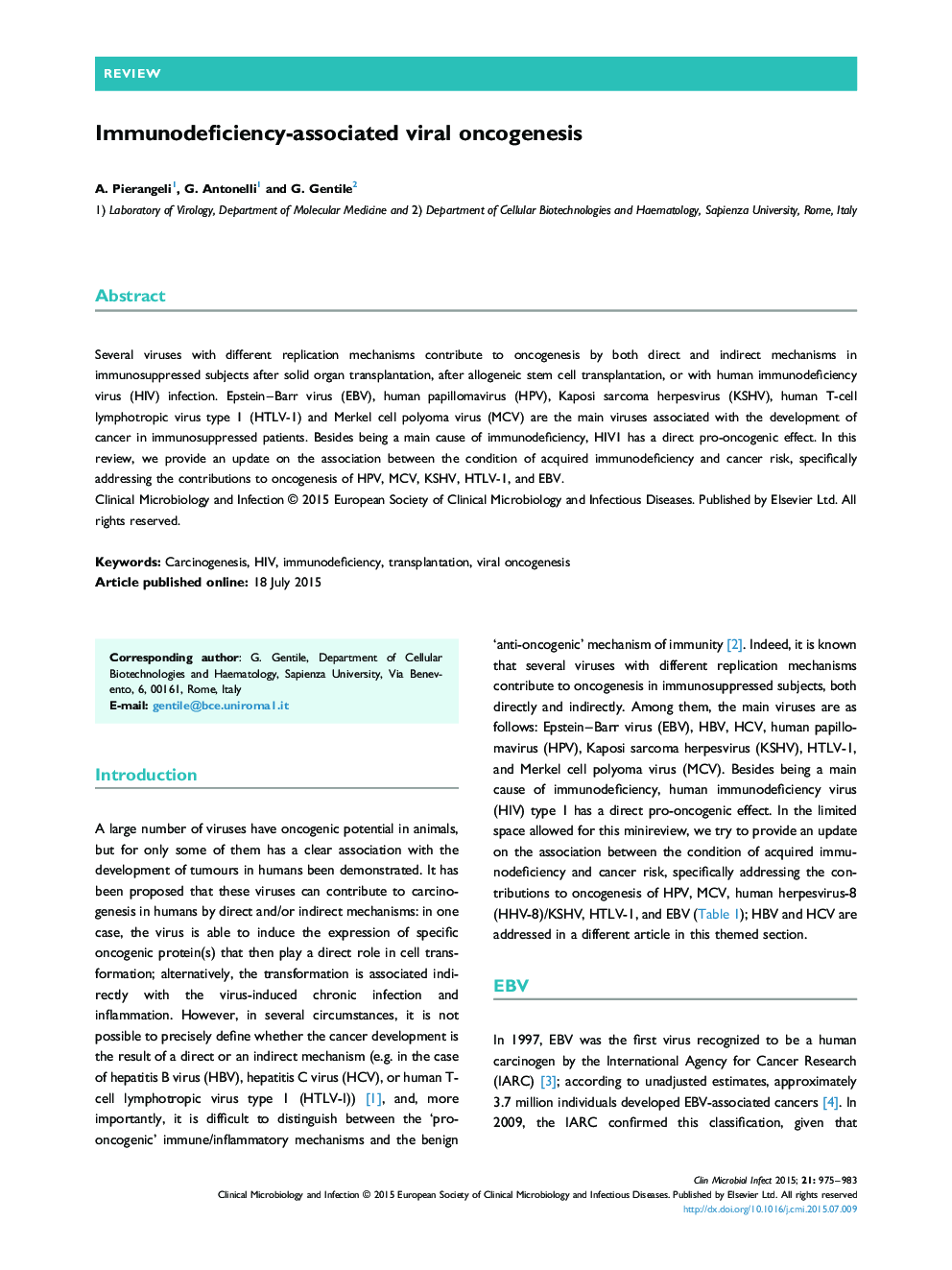| Article ID | Journal | Published Year | Pages | File Type |
|---|---|---|---|---|
| 3396401 | Clinical Microbiology and Infection | 2015 | 9 Pages |
Several viruses with different replication mechanisms contribute to oncogenesis by both direct and indirect mechanisms in immunosuppressed subjects after solid organ transplantation, after allogeneic stem cell transplantation, or with human immunodeficiency virus (HIV) infection. Epstein–Barr virus (EBV), human papillomavirus (HPV), Kaposi sarcoma herpesvirus (KSHV), human T-cell lymphotropic virus type 1 (HTLV-1) and Merkel cell polyoma virus (MCV) are the main viruses associated with the development of cancer in immunosuppressed patients. Besides being a main cause of immunodeficiency, HIV1 has a direct pro-oncogenic effect. In this review, we provide an update on the association between the condition of acquired immunodeficiency and cancer risk, specifically addressing the contributions to oncogenesis of HPV, MCV, KSHV, HTLV-1, and EBV.
